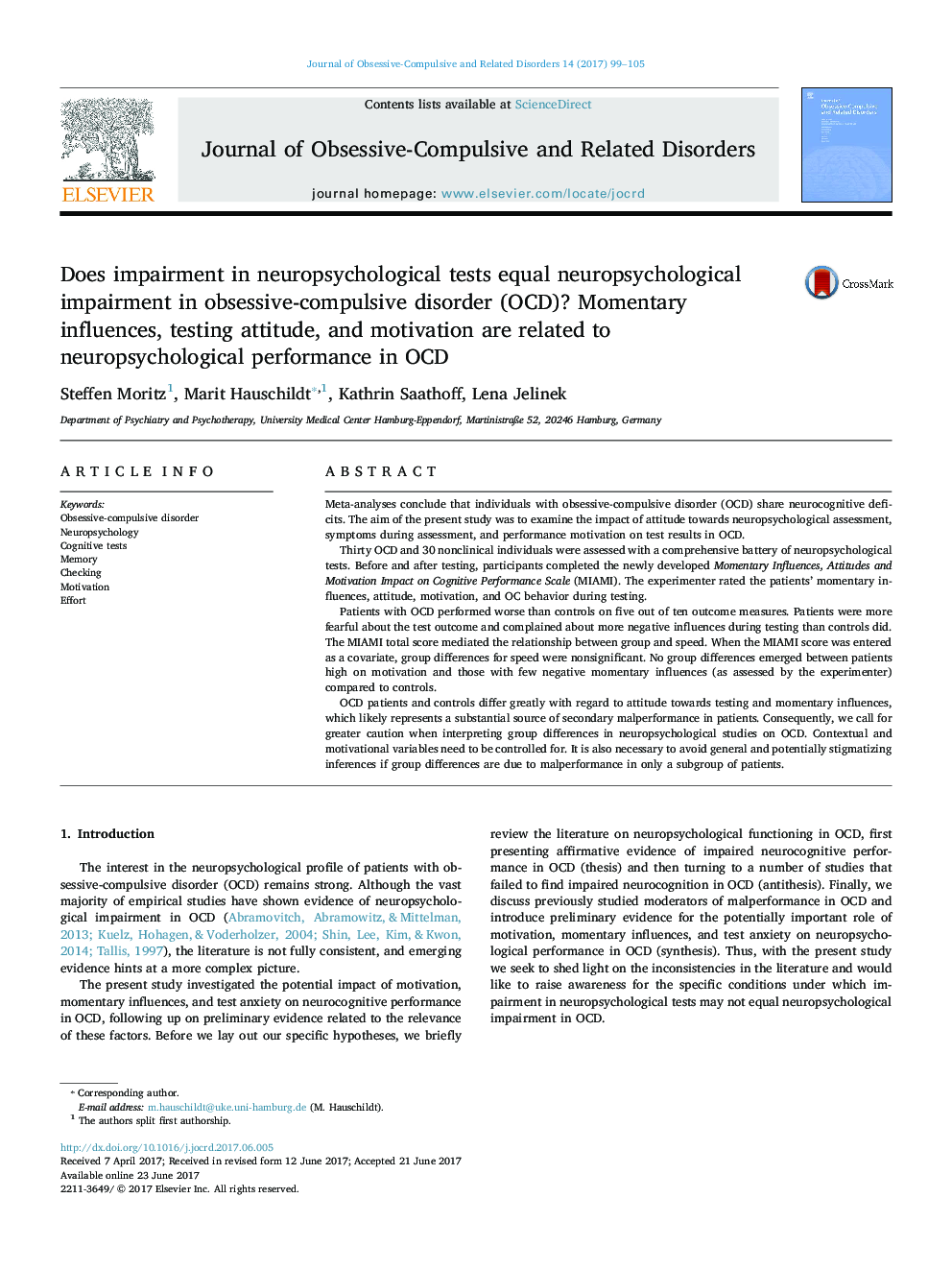| Article ID | Journal | Published Year | Pages | File Type |
|---|---|---|---|---|
| 5039332 | Journal of Obsessive-Compulsive and Related Disorders | 2017 | 7 Pages |
â¢Meta-analyses conclude that individuals with obsessive-compulsive disorder (OCD) display neurocognitive deficits.â¢The influence of symptoms and motivation on malperformance is unclear.â¢We found that test anxiety and effort mediated the relationship of group status and performance.â¢The degree of neurocognitive deficits are likely exaggerated in OCD.
Meta-analyses conclude that individuals with obsessive-compulsive disorder (OCD) share neurocognitive deficits. The aim of the present study was to examine the impact of attitude towards neuropsychological assessment, symptoms during assessment, and performance motivation on test results in OCD.Thirty OCD and 30 nonclinical individuals were assessed with a comprehensive battery of neuropsychological tests. Before and after testing, participants completed the newly developed Momentary Influences, Attitudes and Motivation Impact on Cognitive Performance Scale (MIAMI). The experimenter rated the patients' momentary influences, attitude, motivation, and OC behavior during testing.Patients with OCD performed worse than controls on five out of ten outcome measures. Patients were more fearful about the test outcome and complained about more negative influences during testing than controls did. The MIAMI total score mediated the relationship between group and speed. When the MIAMI score was entered as a covariate, group differences for speed were nonsignificant. No group differences emerged between patients high on motivation and those with few negative momentary influences (as assessed by the experimenter) compared to controls.OCD patients and controls differ greatly with regard to attitude towards testing and momentary influences, which likely represents a substantial source of secondary malperformance in patients. Consequently, we call for greater caution when interpreting group differences in neuropsychological studies on OCD. Contextual and motivational variables need to be controlled for. It is also necessary to avoid general and potentially stigmatizing inferences if group differences are due to malperformance in only a subgroup of patients.
